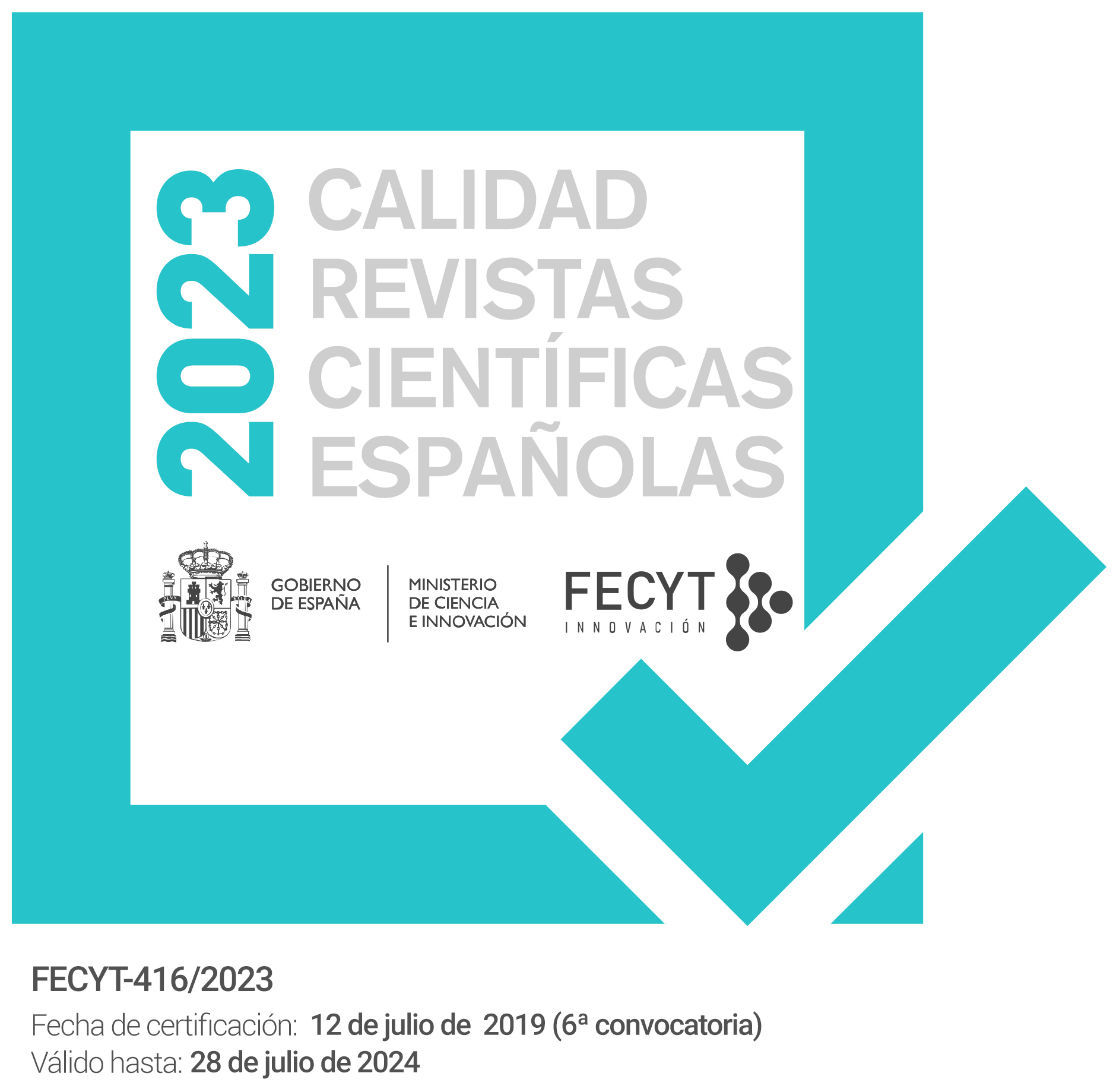Milenarismo, utopía e ideología / Milenarism, Utopia and Ideology
Keywords:
Milenarismo, utopía, ideología, populismo, política, Milenarism, Utopia, Ideology, Populism, PoliticsAbstract
Asumiendo que en el pensamiento político contemporáneo perviven ideas teológicas, abordamos la pervivencia del milenarismo, en su formulación secular, en la teoría política occidental a través de su determinante contribución al concepto de utopía, como diseño y búsqueda de una sociedad ideal finalista y necesaria que ha de trascender el error del presente. Nos interesamos además por el funcionamiento en la práctica de la utopía y la ideología como conceptos complementarios y divergentes, cuyo desarrollo desemboca en las tensiones entre lo local y lo global centrales en la actualidad.
Assuming that contemporary political thought survives theological ideas, we approach the survival of Milenarism, in its secular formulation, in Western political theory through its important contribution to the concept of Utopia, the design and search for an ideal finalist and necessary society that transcends the error of the Present. We are also interested in how Utopia and Ideology work in practice as complementary and divergent concepts, and how they lead to the evident tensions of the present world between the local and the global.
Downloads
References
Arendt, H. (2003): Entre el pasado y el futuro, Paidós, Barcelona.
Arendt, H. (2009): ¿Qué es la política?, Paidós, Barcelona.
Bloch, M. (1977-1980): El principio esperanza, Aguilar, Madrid.
Bloch, M. (2007): «¿Puede frustrarse la esperanza?, en C. Gómez (ed.), Doce textos fundamentales de la Ética del siglo xx, Alianza Editorial, Madrid: 165-173.
Cohen, N. (1972): En pos del milenio: revolucionarios milenaristas y anarquistas místicos en la Edad Media, Barcelona, Barral editores.
Gómez, C. (2007): «Ética y utopía», en C. Gómez y J. Muguerza (eds.), La aventura de la moralidad, Alianza Editorial, Madrid: 480-509.
Gurian, W. (1964): «Totalitarianism as Political Religion» en C. J. Friedrich (ed.), Totalitarianism, Grosset & Dunlap, New York: 120-129.
Gurian, W. (1966): «Las religiones totalitarias», en La imagen del hombre, Tecnos, Madrid.
Horkheimer, M. (1966): La función de las ideologías, Taurus, Madrid: 2-55.
Kolakowski, L. (2000): Si dios no existe..., Tecnos, Madrid.
Kolakowski, L (1990): «La muerte de la utopía: reconsideración» en La modernidad siempre a prueba, Vueltas, México: 187-207.
Manheim, K. (1993): Ideología y Utopía, FCE, México.
Marx, K. (1974): La ideología alemana, Grijalbo, Barcelona.
Moro, T. (1994): Utopía, Alianza Editorial, Madrid.
Neussüs, A. (1971): Utopía, Barral editores, Barcelona, 1971.
Popper, K. (1971): «Utopía y violencia» en A. Neussüs, Utopía, Barral Editores, Barcelona: 129-140.
Popper, K. (2006): La sociedad abierta y sus enemigos, Paidós, Barcelona: 173-184.
Ricoeur, P. (1994): Ideología y utopía, Gedisa, Barcelona.
Romero Pérez, A. (2016): «La revolución pendiente: aproximación a On Revolution de Hannah Arendt», Sémata 28: 135-147.
Toscano, M. (2016): «Contra la utopía. Argumentos liberales contra la sociedad ideal», Paradigma 19: 86-89.
Voegelin, E. (2006): La nueva ciencia de la política: una introducción, Katz, Buenos Aires.
Voegelin, E. (2014): Las religiones políticas, Trotta, Madrid.
Weber, M. (2012): La ética protestante y el espíritu del protestantismo, Alianza Editorial, Madrid.
Wittgenstein, L. (2009), Tractatus Logico-Philosophicus, Gredos, Madrid.
Downloads
Issue
Section
License
The articles are open access distributed under the terms of the Creative Commons Attribution-NonCommercial-NoDerivatives (CC BY-NC-ND) Spain 4.0 license. Authors who publish in this journal agree with the following terms:
a) Authors retain the copyright and guarantee the journal the right to be the first publication of the work as well as licensed under a Creative Commons Attribution License that allows others to share the work with a recognition of the authorship of the work and the Initial publication in this magazine.
b) Authors may separately establish additional agreements for the non-exclusive distribution of the version of the work published in the journal (for example, place it in an institutional repository or publish it in a book), with recognition of its initial publication in this magazine.
c) Authors are allowed and encouraged to disseminate their work electronically (for example, in institutional repositories or on their own website) before and during the submission process, as it may result in productive exchanges, as well as a earliest and largest citation of published works (See The Effect of Open Access).



